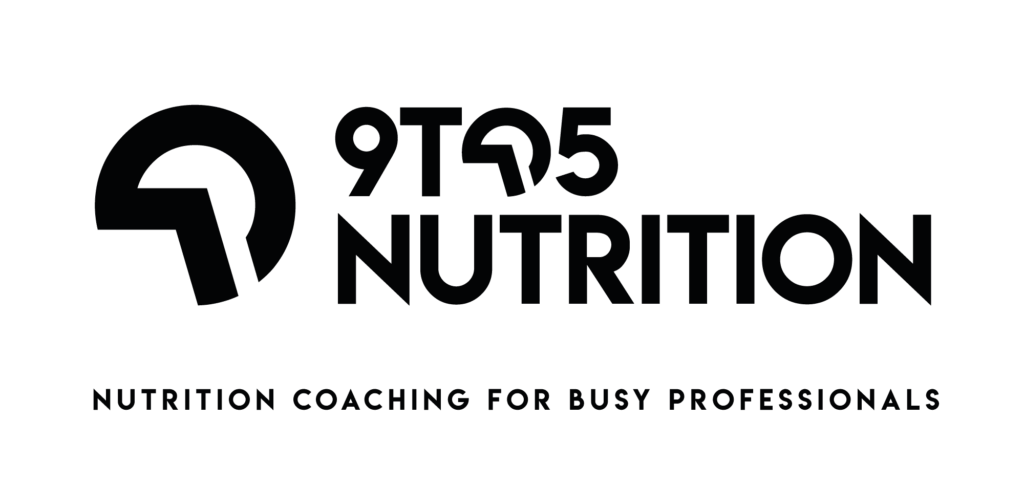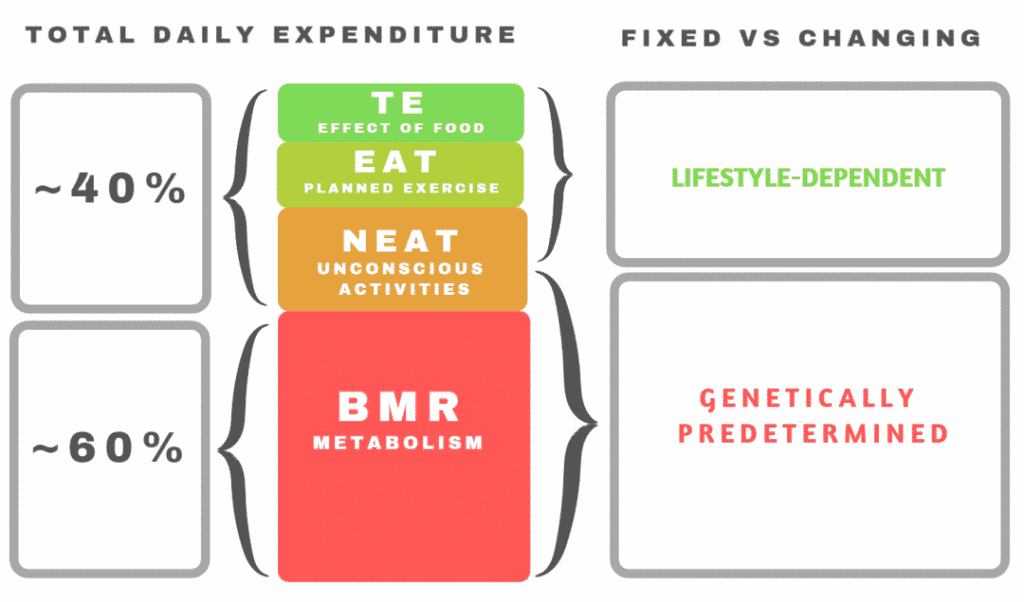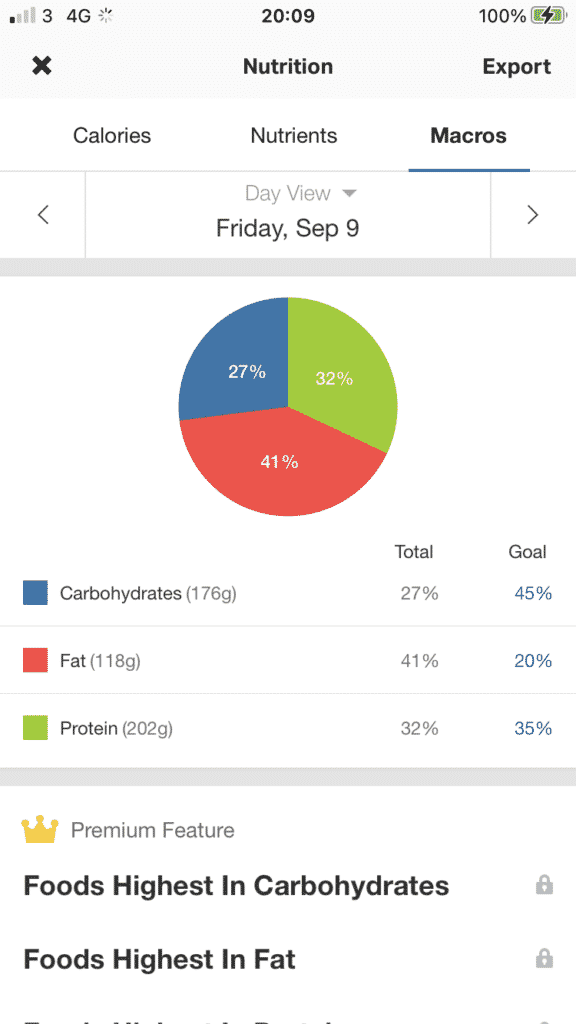- How Much Weight Can You Realistically Lose in 3 Months? - January 14, 2024
- How To Lose 1kg a Week (Guaranteed) - August 20, 2023
- How To Count Calories (or Estimate) and Stay on Track When Eating Out at Restaurants - July 25, 2023
For a lot of people I coach that want to lose weight, protein seems to be an afterthought in most meals.
Think about it; what does a typical breakfast look like for most people? Toast, cereal, a pastry, maybe just a coffee. All have very low amounts of (or no protein).
Protein gets more of a look in at lunch, but even then it’s usually just a pathetic slice or two of ham in a sandwich, or a mixture that looks and tastes suspiciously like 97% mayo, 3% tuna.
Dinner is where most people have their biggest protein hit of the day, but even then there are some popular evening meals that are severely lacking on the protein front; Mac n’ Cheese I’m looking at you
This means that some people can easily get less than 40g of protein per day.
According to the NHS, the recommended daily protein intake for an ‘average’ adult in the UK is 50g.
FIFTY GRAMS!
So if an average adult weighs 75kg, that’s just 0.7g of protein per Kg of body weight. I know, who the hell am I to criticize government guidelines right? And if you think that, go ahead and carry on eating 50g per day, but you’re missing a trick.
So why is protein so important?
For a start, ask the ancient Greeks; the word protein is derived from the Greek word ‘proteios’ meaning ‘the first quality; basically the most important, i.e. the most important nutrient (more so than fats and carbs)
But ancient Greeks aside, for me, protein isn’t just important, when it comes to losing weight, it’s almost magical.
Here’s why;
1. PROTEIN IS LOW IN CALORIES
Protein contains 4 calories per gram.
I know what you’re going to say, so do carbs.
Yes, that’s true. But fat has 9 calories per gram, so if you can shift the ratio of what you eat towards protein and away from fat, you’ll automatically lower your calorie intake.
| Macronutrient | Calories per gram |
| Fat | 9 |
| Carbs | 4 |
| Protein | 4 |
This can be done by switching out high-fat meat, fish, or dairy for lower-fat options, for example; you could switch Salmon out for Cod, or Ribeye Steak out for Rump Steak.
You can see that these types of foods contain both proteins and fats, and there are clear substitutes – the same isn’t necessarily true of carbs – i.e. there aren’t really any equivalent swaps for foods that are high in carbs that you can swap for foods that are high in protein.
2. YOU BURN MORE CALORIES DIGESTING PROTEIN
This one is my favourite
Remember that old myth about Celery burning more calories through the chewing princess than it actually contains?
Well, the good news is that’s not a myth, food does take effort (energy) to digest.
This process is called the ‘thermic effect of food’ (TEF) or ‘diet-induced thermogenesis (DIT).
Every different macronutrient requires different levels of effort from your body to digest it, but protein requires the most effort.
That means that you BURN more calories digesting protein than you do digest carbohydrates or fat
So essentially, the more protein you have in your diet, the fewer calories you eat actually get stored.
Exactly how many calories does each macronutrient burn though? This study showed that for fat 0-3% of the calories are used in digestion, 5-10% for carbohydrates, and 20–30% for protein.
| Macronutrient | % of Calories Burned in Digestion |
| Fat | 1.5 |
| Carbs | 7.5 |
| Protein | 25 |
This is basically very cool because it means that you can make sure you store less of the calories you eat simply by eating more protein.
So, if you ate 2000 calories of protein, you’d actually only be eating a net 1,500 calories. If you ate 2000 calories of fat, however, you’d be eating a net 1,970 calories.
Of course, no one would eat just protein carbs or fat in a day but this demonstrates how powerful protein can be for helping your diet.
To look at this in another way, if we reimagine the ‘calories per gram’ table earlier in the article, when we take into account TEF, this is the theoretical reality of how many calories are actually absorbed from each macronutrient
| Macronutrient | Net Calories per Gram (after TEF) |
| Fat | 8.9 |
| Carbs | 3.7 |
| Protein | 3 |
Again, the key takeaway here is that reducing fat in your diet and increasing protein will help you lose weight.
So, while TEF (the thermic effect of food) typically might make up only 10% of the total calories you burn each day (see diagram below), you could potentially shift this up a few percentage points just by eating more protein. This could mean you actually need to do less exercise to lose (or maintain) weight because your body digesting all that protein is doing the hard work for you!
3. PROTEIN HELPS TO BUILD MUSCLE
Most people know that you need to eat a certain amount of protein to build muscle at an optimal rate (sorry Popeye, you had it wrong with Spinach all along).
But you only want to lose weight, so why do you care about building muscle?
Because HAVING muscle will make weight loss easier?
Why?
Because muscle tissue is more metabolically active than fat tissue, which means the more muscle you have, the more calories you’ll burn when you’re sitting around doing nothing.
So how much should you eat to build or maintain muscle?
This 2018 meta analysis recommends 1.6g–2.2g of protein per day for people lifting weights.
I would personally advise going somewhere in the middle of that and aiming for around 1.8g of protein per Kg of body weight (or 0.8 per lb).
This means if you weigh 75kg, that’s 135g of protein per day – that’s over double what’s recommended by the NHS!
The elephant in the room we also need to address is that if you want to build and/or maintain muscle mass you’ll need to be lifting weights on a regular basis.
For most people, I’d recommend three 60 minute sessions per week, hitting all the major muscle groups (back, chest, legs, shoulders, arms, abs) and taking some sets to or near failure.
4. PROTEIN IS FILLING
The final magical thing about protein is that it helps with satiety.
That’s just a scientific way of saying that it fills you up.
This is the same reason that your body burns more calories digesting protein – because it takes more effort to digest, the process takes longer, so the nutrients filter into your bloodstream at a slower rate, thus making you feel fuller.
This study on 8 lean women split the group and gave them two different diets, one with a protein/carb/fat ratio of 29/61/10 and the other with a ratio of 9/30/61. The group eating the higher protein diet reported higher satiety both during the meal and 24 hours afterwards, and experienced a higher DIT (diet-induced thermogenesis).
Furthermore, this 2014 study compared the satiating effects of three snacks, a high-protein yogurt, crackers and chocolate (all were calorie-matched at 160 calories). Twenty women were split into groups that ate one of these snacks for three days. It was found that the yogurt snack was superior at promoting afternoon fullness than the crackers or the chocolate, and also led to fewer calories being consumed at dinner time.
If you feel fuller, you’re going to be less likely to have a desire to eat more calories (plus, remember your body is burning extra calories digesting that protein – win-win.
HOW MUCH PROTEIN SHOULD YOU BE HAVING?
If you missed it above, I personally recommend 1.8g per Kg or body weight or 0.82g per lb of bodyweight.
There are a couple of handy tables below to help you work out how much you need for your weight.
In Kg
| Weight (Kg) | Recommended Protein Intake (g) |
| 50 | 90 |
| 55 | 99 |
| 60 | 108 |
| 65 | 117 |
| 70 | 126 |
| 75 | 135 |
| 80 | 144 |
| 85 | 153 |
| 90 | 162 |
| 95 | 171 |
| 100 | 180 |
| 105 | 189 |
| 110 | 198 |
| 115 | 207 |
| 120 | 216 |
| 125 | 225 |
| 130 | 234 |
In Pounds
| Weight (Kg) | Recommended Protein Intake (g) |
| 120 | 98 |
| 130 | 107 |
| 140 | 115 |
| 150 | 123 |
| 160 | 131 |
| 170 | 139 |
| 180 | 148 |
| 190 | 156 |
| 200 | 164 |
| 210 | 172 |
| 220 | 180 |
| 230 | 189 |
| 240 | 197 |
| 250 | 205 |
| 260 | 213 |
| 270 | 221 |
| 280 | 230 |
How do you know how much protein you’re having?
Easy, you can use the ‘maros’ view in My Fitness Pal to see how many grams of protein you’re eating per day, and what percentage of your overall calories that makes up.
WHAT ARE THE LOWEST-FAT PROTEIN SOURCES?
You want to aim for not just the sources that have the highest amount of protein per serving, but also the lowest amount of fat. This is generally going to mean white fish, lean poultry, lean red meat, and low-fat dairy.
Below I’ve created a quick and easy table for you to reference which contains some typical high protein foods. I’ve also listed the ‘protein per calorie, so you can see which high protein foods are going to give you the most bang of your buck when dieting.
Clue: you should eat foods higher up on the table frequently if trying to lose weight, and food slows down the table less frequently!
| Source | Protein per 100g | Calories per 100g | Protein Per Calorie |
| Prawns/Shrimp | 24 | 99 | 0.24 |
| Cod | 18 | 82 | 0.22 |
| Protein Powder (My Protein Impact Whey) | 82 | 412 | 0.20 |
| Chicken Breast | 31 | 165 | 0.19 |
| Low Fat Yogurt | 10 | 59 | 0.17 |
| Rump Steak | 28 | 182 | 0.15 |
| Turkey Breast | 29 | 189 | 0.15 |
| Chicken Thigh | 24 | 177 | 0.14 |
| Pork Loin | 27 | 242 | 0.11 |
| Protein Bar (Carb Killa) | 40 | 359 | 0.11 |
| Salmon | 20 | 208 | 0.10 |
| Ribeye Steak | 24 | 291 | 0.08 |
| Low Fat Milk (1%) | 3 | 42 | 0.07 |
| Bacon | 37 | 541 | 0.07 |
| Duck Breast | 19 | 337 | 0.06 |
| Regular Milk (3%) | 3 | 62 | 0.05 |
N.B. These calorie and protein values may not be totally accurate and will differ by brand and cooking method (e.g, if you cut the fat off your bacon or add oil when cooking), always scan and track the exact food you’re eating.
WHAT ABOUT PROTEIN SHAKES?
Protein shakes are NOT just for bodybuilders, there is nothing magic about them, they won’t help you pack on tons of muscle quickly or drop fat, BUT, they are a very convenient, low calorie, cheap source of protein that tastes relatively good.
If you refer to the table above you can see that the particular example I’ve looked at (My Protein Impact Whey) has a lot of protein for relatively few calories, so it would certainly make sense to include these in your diet if you’re trying to lose weight.
REFRENCES
Reference intakes explained: https://www.nhs.uk/live-well/eat-well/what-are-reference-intakes-on-food-labels/
Diet induced thermogenesis: https://www.ncbi.nlm.nih.gov/pmc/articles/PMC524030/
Satiety related to 24 h diet-induced thermogenesis during high protein/carbohydrate vs high fat diets measured in a respiration chamber: https://pubmed.ncbi.nlm.nih.gov/10403587/
Effects of high-protein vs. high- fat snacks on appetite control, satiety, and eating initiation in healthy women: https://nutritionj.biomedcentral.com/articles/10.1186/1475-2891-13-97
Recent Perspectives Regarding the Role of Dietary Protein for the Promotion of Muscle Hypertrophy with Resistance Exercise Training: https://www.ncbi.nlm.nih.gov/pmc/articles/PMC5852756/



Leave a Reply